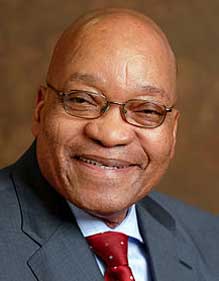
Although the move on the ethics code was largely expected, Corruption Watch cautiously recognises the two efforts, saying they can go a long way in inspiring confidence in citizens. For these steps it has taken, Corruption Watch declares the South African government the hero for this week.
According to ANC chief whip Stone Sizani, the Code of Ethical Conduct and Disclosure of Member's Interests will remove the anomaly of members of the cabinet doing business with the state – as they were reported to be doing – "while making laws forbidding civil servants from doing the same".
Sizani said the ruling party proposed that the new code come into effect on 1 November to give those who would be affected time to comply with it, reported News24. "It is important that members and public representatives are thoroughly workshopped on the provisions to ensure that on the effective date they are compliant," said a statement issued by his office.
Under the new code, the ban on doing business with the government will extend to the spouses and dependants of elected representatives. It has, however, received some criticism from the Ethics Institute of South Africa. "The code of ethics itself is a perfectly good one, except that it makes no provision for the process to be followed when the alleged transgressor is the president himself," said the chief executive of Ethics SA, Professor Deon Rossouw.
"It's a well-established legal and moral principle that nobody can be [the] judge in his own case. This is something that must be remedied urgently by Parliament to prevent a replay of the current situation." It was not clear if the code even covered the president, reported IOL.
Corruption Watch will follow developments on the matter.
On the matter of the special investigations, Zuma announced that he had asked the SIU to look into allegations of corruption in the National Transport, Public Works and Labour departments, as well as in the South African Post Office and the State Information Technology Agency. The Greater Tubatse Local Municipality and Vhembe District Municipality in Limpopo are also to be investigated. "While not pre-judging these cases, the proclamations are part of the drive to fight, eradicate and prevent corruption and maladministration at all levels of government and state-owned enterprises," said presidential spokesman Mac Maharaj.
While Corruption Watch openly supports efforts to expose corruption in public office, it remains to be seen whether the findings of the SIU investigations will bear fruit in terms of bringing errant officials to account. The same goes for the MPs' ethics code, which will be of little relevance if there is no punishment for those who act outside it.

